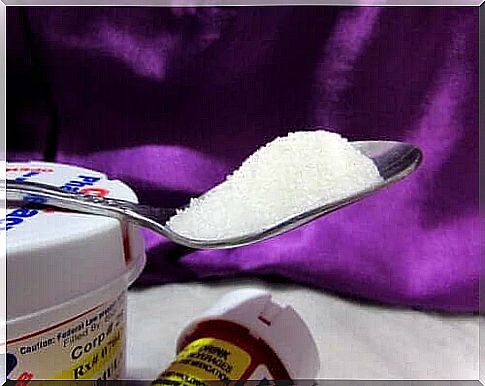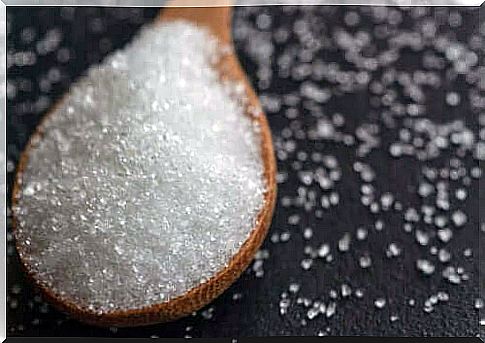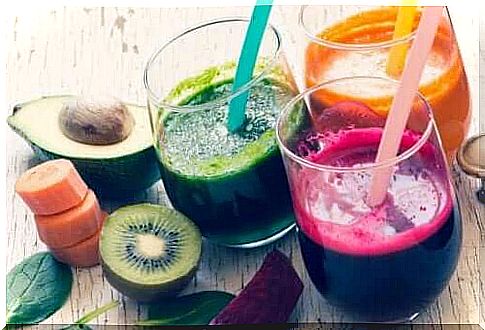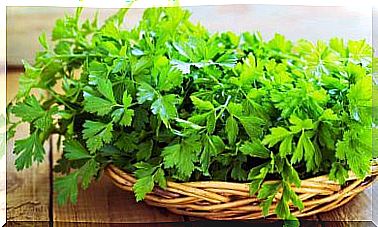How Does Your Body Process Glucose?

Glucose is a monosaccharide containing 6 carbon atoms. It is a form of sugar and is one of the most abundant organic compounds on Earth. How does your body process glucose?
Although glucose is very important for your body to function normally, you only need it in moderation. If glucose levels are too high or out of control, it can cause serious health problems.
One of its most important functions for humans is as a source of energy for all cells in the body. Many of your organs, such as the brain and other tissues, need sugars. In addition to lipids, glucose is one of the most important energy substances.
Glucose and sugar are not the same
These are two substances that you should not confuse. Sugar (sucrose) is in fact another chemical compound that consists of glucose molecules and fructose molecules.
Although your body will process glucose once it is broken down, sugar in your diet is not necessary. What the body needs to function is glucose. And as we’ll see below, it can come from other sources.
Main sources of glucose

We should not confuse sugar with glucose. Your body needs the second, not necessarily the first. The way we absorb glucose is through carbohydrates and sugar. The most common are:
- Bread
- Pasta
- Rice
- Vegetables
- Fruit
- Dairy products
All carbohydrates eventually contribute glucose to your body when they are broken down. The only exception is fiber. Since your body doesn’t have the right enzymes to break it down, it passes through the digestive tract intact until it reaches the colon. There, your gut bacteria are responsible for digesting them.
However, we should note that in the absence of carbohydrates, the body also has other pathways for energy. By using fat and protein, other metabolic pathways function and the body can also absorb glucose in this way.
How does your body process glucose?
When you eat foods rich in carbohydrates, your body begins to digest them. From the mouth to the small intestine and thanks to enzymes, digestive juices and movements of the digestive system, your body breaks down complex carbohydrates to obtain glucose.
The glucose molecules end up in the small intestine. From there, however, they still cannot be used by your cells. Once in the small intestine, they pass into the blood.
At this point, the pancreas and insulin come into play. When the brain detects the presence of glucose in the blood, it sends a signal to the endocrine gland to secrete insulin. In normal situations, the pancreas automatically secretes the necessary insulin at all times.
We could say that insulin is the key that opens the door of the cells for glucose to enter. Once inside the cell, it is ready to be used by your cells as an energy source.
Differences in recording by source

While both sugar and carbohydrates ultimately provide energy to the body, the way your body absorbs glucose changes depending on what you eat. A number of foods are essentially rich in simple sugars:
- Honey
- table sugar
- syrups
- Soft drink
- fruit juices
Since these foods are digested quickly, glucose also reaches the blood faster, causing spikes in blood glucose. In response, the pancreas also releases more insulin, which is then more present in the blood.
One of the consequences of this reaction is that after the action of insulin there is a rapid decrease in blood glucose, leading to hypoglycemia. This can make you feel hungry or dizzy, double or blurry vision, and get a headache.
On the other hand, if you eat foods rich in complex carbohydrates (whole grains and high fiber foods), your body processes glucose in a different way: it is a slower and more progressive process.
As a result, insulin also appears more consistently. Blood glucose stays constant and longer and you avoid sudden spikes in blood sugar and lack of energy.
Health effects of simple sugars
We have already seen that eating foods rich in simple sugars causes spikes in insulin and blood glucose. This continuously increases the risk of diseases such as:
- obesity
- Heart and vascular disease
- High bloodpressure
- metabolic syndrome
There is also a risk that your pancreas will not function normally or that your cells will generate insulin resistance. When this happens, your blood glucose is constantly raised. We call this diabetes.
The body needs good glucose
As we’ve seen, fast processing can cause your energy to peak and fall throughout the day. And this can lead to problems with insulin resistance or type 2 diabetes in the long run.
The best way to avoid this is to eat fresh foods rich in complex carbohydrates:
- Fruit and vegetables
- Whole grains
- Root vegetables
- Dairy products









